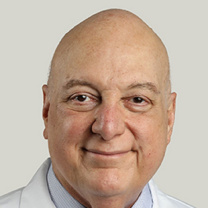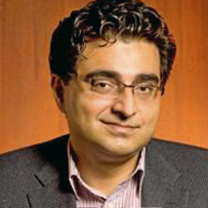Steering Committee

Professor John McMurray
Professor of Cardiology
Institute of Cardiovascular & Medical Sciences, Glasgow, UK
John McMurray is Professor of Medical Cardiology and Deputy Director of the Institute of Cardiovascular and Medical Sciences at the University of Glasgow, UK. He is also an honorary Consultant Cardiologist at the Queen Elizabeth University Hospital, Glasgow. He served as the inaugural Eugene Braunwald Scholar in Cardiovascular Disease at the Brigham and Women’s Hospital, Boston, and visiting Professor of Medicine at Harvard University, Boston, in 2010 and 2011. He is an immediate Past-President of the Heart Failure Association of the European Society of Cardiology (ESC).
Professor McMurray graduated from Manchester University with a BSc (Hons) in 1980 and Mb ChB (Hons) in 1983. He is a fellow of multiple organisations including the ESC, the American Heart Association and the American College of Cardiology. He is also a fellow at the medical Royal Colleges in Edinburgh and Glasgow and the Royal Society of Edinburgh and UK Academy of Medical Sciences. He has been a member and chair of many guideline committees, and the lead author of two prominent guidelines on the management of heart failure (The World Health Organisation Guidelines, and First Scottish Intercollegiate Guidelines). He is also a member of the editorial board of the New England Journal of Medicine and sits on the editorial board of several leading cardiovascular journals, including the European Heart Journal (as Associate Editor) and Circulation.
His primary research interests include heart failure, coronary heart disease and atrial fibrillation. He is also interested in the cardiovascular consequences of diabetes and chronic kidney disease, with a specific focus on clinical trials and epidemiology. He is a member of the executive committee or steering committee in many clinical trials on heart failure and other cardiovascular diseases, renal disease, and diabetes. Identified as one of the 400 most influential biomedical researchers in the world, he was jointly awarded the 8th Arrigo Recordati International Prize for Scientific Research (for outstanding contributions in secondary prevention and risk reduction strategies in patients with cardiovascular diseases).

Professor Naveed Sattar
Professor/Honorary Consultant
Institute of Cardiovascular and Medical Sciences, Glasgow, UK
Naveed Sattar joined the University of Glasgow as Professor of Metabolic Medicine at the Institute of Cardiovascular and Medical Sciences. He is currently an Honorary Consultant in Metabolic Medicine at the Glasgow Royal Infirmary, where he co-leads a cardiovascular disease prevention clinic. He is a Fellow of the Royal College of Pathologists, the Royal College of Physicians and Surgeons (Glasgow), the Royal Society of Edinburgh and the UK Academy of Medical Sciences. Professor Sattar promotes evidence-based knowledge across the cardiometabolic and lifestyle areas and has been invited to participate on several clinical guidelines.
Professor Sattar graduated from the University of Glasgow in 1990 and was later awarded a PhD. He is currently involved in several lifestyle and drug trials in diabetes and cardiovascular disease, and leads on biomarker initiatives in other trials. He is on the editorial board for BioMed Central (BMC) Medicine and is also an Associate Editor for Circulation. He has previously served on committees for Diabetologia, Diabetes Digest, Lancet Diabetes and Endocrinology, Diabetes UK, the European Association for Study of Diabetes, and the American Diabetes Association, among others.
Professor Sattar’s research interests lie in investigating the causes, prevention and management of diabetes, obesity, and heart disease. He is known for his epidemiology work in diabetes, working primarily with Scottish, Swedish and English colleagues but also around the world. He has been a key participant in relevant Emerging Risk Factor Collaborative Papers as well as leading other local papers within his own group. An expert in biomarkers, he has multiple papers in prestigious journals and has received numerous awards and prizes for his work in the field.

Professor Rajiv Agarwal
Professor of Medicine
Indiana University, Indiana, USA
Professor Rajiv Agarwal is a tenured Professor of Medicine at Indiana University School of Medicine, Indianapolis. He serves on the Board of Directors of Kidney Disease Improving Global Outcomes (KDIGO), and previously served on the panel for the Medical Evidence Development Coverage Advisory Committee (MEDCAC) for United States Medicare. He also served as an Associate Editor of NephSAP (Nephrology Self-Assessment Program) for 6 years.
Professor Agarwal earned his medical degree from the All India Institute of Medical Sciences in New Delhi, India. After completing his residency in Internal Medicine at the same institution, he went on to complete a Nephrology fellowship at the University of Texas Southwestern Medical Centre in Dallas. In July 1997, he joined the University as Clinical Assistant Professor.
Professor Agarwal’s expertise is clinical and translational research in nephrology. He has published approximately 250 original papers and was among the first to demonstrate the effect of add-on angiotensin receptor blockade on cytokine production and oxidative stress in patients with chronic kidney disease. He developed a technique for measuring oxidative stress biomarkers using high-performance liquid chromatography (HPLC) and applied this method to demonstrate generations of oxidative stress with intravenous iron in patients with chronic kidney disease. He was the first to describe the anti-proteinuric effects of vitamin D receptor activators. Recently he contributed a chapter on the approach to a patient with renal disease to Cecil’s Textbook of Medicine, and is the recipient of several awards, including the Clinical Excellence Award from the American Nephrologists of Indian Origin (ANIO), the Indiana University Trustee’s teaching award and the Young Scholar Award from the American Society of Hypertension.

Professor George Bakris
Professor of Medicine and Director
American Society of Hypertension’s Comprehensive Hypertension Centre, University of Chicago
Professor George Bakris is a Professor of Medicine and a member of the National Kidney Foundation’s Board of Directors. He was previously vice chairman of Preventive Medicine and Director of the Rush University Hypertension Centre in Chicago, where he also held the role of Assistant Professor of Medicine and Pharmacology. He currently a special government expert for the FDA, where he has previously served as an expert member on the Cardio-renal Advisory Board. He chaired the first National Kidney Foundation Consensus report on blood pressure and impact on disease progression and has served on many national guideline committees including the Joint National Committee (JNC), the American Diabetes Association Clinical Practice Guideline Committee and the Blood Pressure Guideline Committee. He was also President of the American College of Clinical Pharmacology and the American Society of Hypertension.
Professor Bakris studied medicine at the Chicago Medical School, graduating in 1981. He then went on to complete his residency in both medicine and psychiatry, and later obtained Fellowships in nephrology and clinical pharmacology.
His research interests focus mainly on diabetic nephropathy. He has published over 700 articles and book chapters in the areas of hypertension, diabetic kidney disease and progression of nephropathy, and is editor or co-editor of 19 books in this field. He was an associate editor of the International Textbook of Cardiology and is the current editor of the American Journal of Nephrology and the Nephrology and Hypertension Section Editor of Up-to-Date. He has won several awards for his work in nephrology and diabetes, including the National Kidney Foundation of Illinois Lifetime Service Achievement Award (2021), the International Society of Hypertension- Astra Zeneca Award (2014), and the Castle Connolly Top Doctors in Chicago and United States (2012 – present).

Emeritus Professor Richard Donnelly
Emeritus Professor of Medicine, Editor-in-Chief
University of Nottingham, United Kingdom
Professor Richard Donnelly is an Emeritus Professor at the University of Nottingham’s School of Medicine and is the founder and Editor-in-Chief for the international journal of Diabetes, Obesity and Metabolism.
He studied Medicine at the University of Birmingham, graduating in 1984. He held positions at QEII Hospital and General Hospital, Birmingham before moving to the University of Glasgow for nine years. Following time as a Fellow in Endocrinology at Stanford University, USA and as Senior Lecturer and Consultant Physician at the Royal Prince Alfred and Concord Hospitals in Sydney, Australia, Professor Donnelly took up post as a Consultant Physician at the University Hospitals of Derby & Burton NHS Trust. He was also concurrently Professor of Medicine at the University of Nottingham.
His research interests focus largely on disease-modifying interventions to prevent diabetes-related vascular complications as well as endocrine and cardiovascular pharmacology. He has authored over 200 peer-reviewed publications in these fields. Professor Donnelly has previously been Reviews Editor for the British Journal of Clinical Pharmacology as well as Executive Editor for the British Journal of Clinical Pharmacology.

Professor Hiddo Heerspink
Professor of Clinical Trials and Personalised Medicine
Groningen, Netherlands
Hiddo Lambers Heerspink is Professor of Clinical Trials and Personalised Medicine at the Department of Clinical Pharmacy and Pharmacology at the University Medical Center Groningen. He is also a visiting professor at the University of New South Wales in Sydney. He worked as a Postdoctoral Fellow at The George Institute for Global Health in Sydney, where he investigated the effects of blood pressure-lowering regimens on renal and cardiovascular outcomes in patients with chronic kidney disease.
Professor Heerspink studied pharmacy at the University of Groningen and received his PhD from the University Medical Center Groningen. His expertise includes clinical trial design and personalised medicine, as well as methodological aspects and statistical analyses of clinical trials.
His research interests focus on optimising current treatment strategies and finding new therapeutic approaches to halt the progression of renal and cardiovascular diseases in patients with diabetes, with a specific focus on personalised medicine. He has authored and co-authored over 250 peer-reviewed publications. Based on his work at The George Institute, he was awarded a young investigator grant and, in 2015, a consolidator investigator grant from the Dutch organisation of scientific research.

Professor Meg Jardine
Professor and Director
National Health and Medical Research Council (NHMRC) Clinical Trial Centre, University of Sydney, Australia
Professor Meg Jardine is the Director of the Clinical Trial Centre at the University of Sydney, and leader of its Kidney Health Research Group. She has worked as a nephrologist in both the public and private sectors, where she directly manages chronic kidney disease and diabetes and their consequences for patients. She is an Executive Committee Member of the international nephrology guidelines body, KDIGO, and has contributed to the Australian CARI guideline development (the Australia and New Zealand guideline developer in nephrology). She contributes to policy setting and implementation through roles such as Board Member of the Kidney Health Initiative, a public-private collaboration of the American Society of Nephrology and the US Food and Drug Administration. Professor Jardine joined the CTC from the George Institute in Sydney, where she was Programme Head of Innovation and Kidney Research. She is a practicing nephrologist at the Concord Repatriation General Hospital, and is a member of several committees, including the American Society of Nephrology, the International Society of Nephrology and the Transplantation Society of Australia and New Zealand.
Professor Jardine studied medicine at the University of Sydney, graduating in 1995. She then went on to become a Fellow of the Royal College of Physicians, before obtaining a PhD at the same university in 2008.
Her research interests centre on preventing the progression and complications of kidney disease and diabetes, as well as cardiovascular disease. She has over 150 peer-reviewed publications researching the cardiovascular outcomes of patients on haemodialysis and the effects of long-term diabetic medications on the kidneys. She has a particular interest in using innovative trial designs to better generate evidence and improve outcomes and has pioneered the first registry-based randomised quality improvement study in Australian dialysis care. She has won several awards for her work in nephrology, including the T.J. Neale award for Outstanding Contribution to Nephrological Science in 2020.

Professor Darren McGuire
Cardiologist Specialising in Diabetes
Department of Internal Medicine, University of Texas Southwestern Medical School, Texas, USA
Darren McGuire is a Professor in the Department of Internal Medicine at the University of Texas (UT) Southwestern Medical School. He is a cardiologist with expertise in large-scale cardiovascular outcomes, trial design and execution, as well as drug registration/regulation, with a focus in diabetes and cardiovascular disease. He is a Fellow of the American Heart Association (AHA), the American College of Cardiology and the European Society of Cardiology. In addition, he was also the former chair of the AHA Diabetes Committee. He has had leadership roles for numerous international cardiovascular clinical outcomes trials, including T2DM, obesity, and lipid trials.
Professor McGuire earned his medical degree at the Johns Hopkins University School of Medicine and completed an internal medicine residency at UT Southwestern. He received advanced training in cardiology through a fellowship at Duke University, North Carolina, where he also conducted research for 2 years. He has a master’s degree in health sciences in clinical trials.
Over the last 25 years Professor McGuire has worked together with clinical researchers around the world, changing the landscape for diabetes care. He is Deputy Editor of Circulation, Senior Editor of Diabetes and Vascular Disease Research, co-editor of the textbook Diabetes in Cardiovascular Disease: A Companion to Braunwald’s Heart Disease and Vice Chair of the AHA Diabetes Committee. He has authored/co-authored over 350 peer-reviewed manuscripts, reviews, editorials, and book chapters, and received numerous teaching awards, most notably the UT System Board of Regents Outstanding Teaching Award in 2013.

Professor Subodh Verma
Cardiac Surgeon-scientist
St. Michael’s Hospital, University of Toronto, Canada
Professor Subodh Verma is an internationally renowned cardiac surgeon-scientist and Professor at the
University of Toronto. He is the Canada Research Chair in Cardiovascular Surgery and a past recipient of the Howard Morgan Award for Distinguished Achievements in Cardiovascular Research. He has also received the Royal College of Physicians and Surgeons of Canada Gold Medal in Surgery. He has served in various capacities on the American Heart Association Council on Cardiovascular Surgery and Anaesthesia, and runs a bicuspid aortic valve clinic, a South Asian risk stratification centre, and several satellite clinics.
Professor Verma has actively contributed to the development of multiple national clinical practice guidelines on cardiovascular disease. His clinical practice includes adult cardiac surgery, and he has particular interest in mitral valve repair and bicuspid aortopathy. He oversees a pre-clinical and translational research team that leverages pre-clinical disease models and clinical trial-derived data to identify novel mediators of cardiovascular and cardiometabolic disease, as well as answer timely and relevant healthcare questions.
Professor Verma has published extensively in prestigious journals including the New England Journal of Medicine, Lancet, and Circulation, and he is currently an Associate Editor of the European Heart Journal. He continues to be an active contributor to several Canadian Cardiovascular Society guidelines and co-authored the 2018 Diabetes Canada guidelines on bicuspid aortic valve-related aortopathy.

Professor Tina Vilsbøll
Chief Consultant
Steno Diabetes Centre Copenhagen, Gentofte Hospital, University of Copenhagen, Denmark
Professor Tina Vilsbøll is the founder and Head of Clinic at Steno Diabetes Centre, Copenhagen and has been involved in diabetes research since 1997. She is a medical specialist in both clinical pharmacology and endocrinology as well as being an experienced teacher, supervising research into diabetes. Her work is focused on developing new diabetes medicines for the treatment of type 2 diabetes.
Her research interests include the pathophysiology of obesity, prediabetes, type 2 diabetes, the regulation of appetite and food intake, and the utilisation of incretins as therapeutics. Integration of the gut in the understanding of human glucose metabolism has become a major focus in her lab over recent years. She has authored or co-authored 300 scientific publications as well as several published books and book chapters. In addition to her teaching and research posts, she is a member of several professional societies and committees.

Professor David Wheeler
Professor of Kidney Medicine
University College London, UK
Professor David Wheeler is a Research Partner with The George Institute for Global Health and has developed clinical practice guidelines for several organizations, most recently for Kidney Disease: Improving Global Outcomes (KDIGO), of which he is currently Co-Chair. He is Clinical Lead for Division 2 of the North Thames Clinical Research Network and heads a team of eight Clinical Trials Nurses/Practitioners at the Centre for Nephrology, Royal Free Hospital in London. He is Past President of the UK Renal Association, past chair of the UK Renal Registry and is currently National Institute for Health Research (NIHR) National Specialty Lead for Nephrology.
Professor Wheeler is Honorary Professorial Fellow of The George Institute (Sydney, Australia), supporting the organisation’s clinical trial activities in Europe.
His research interests are focused on the complications of chronic kidney disease. More specifically his research investigates those complications that increase the burden of cardiovascular disease and/or accelerate progression of kidney failure. He has participated in the development and running of several large-scale clinical trials testing lipid lowering regimens, calcimimetics and sodium glucose cotransporter 2 inhibitors in patients with chronic kidney disease.











